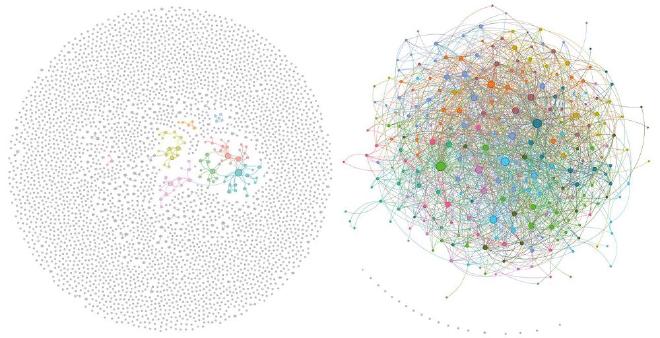

In an article signed by Tanya Petersen we read that **disinformation campaigns and propaganda take place not only in traditional social media, but also in messenger services such as WhatsApp, Telegram and Signal. And yet, there’s been little scientific research into the latter to date.
Now, researchers affiliated with both EPFL’s Security and Privacy Engineering Laboratory (SPRING) in the School of Computer and Communications Sciences and the Max Planck Institute for Security and Privacy with colleagues from Ruhr University in Bochum, Germany, have developed a new method to track down accounts that systematically spread propaganda in Telegram channels.
Russian and Ukrainian propaganda networks identified #
As outlined in their paper, the researchers analyzed 13.7 million comments from 13 Telegram channels with a focus on politics or news. 1.8 percent of them turned out to be propaganda. The majority was spread by a pro-Russian network, which had posted up to 5 percent of all messages in some channels. The researchers also uncovered a smaller pro-Ukrainian propaganda network.
How propaganda accounts operate on Telegram #
Their detection mechanism is based on the responses that the propaganda accounts give to the accounts of ordinary users. As the researchers showed, propaganda accounts on Telegram don’t initiate conversations, but respond to comments from other users that contain certain keywords, such as Putin or Zelensky.
The researchers used this feature to program an automated detection mechanism. It was able to recognize propaganda based on a single comment with a hit rate of 97.6 percent, which is 11.6 percent better than a human.

Human moderation has varying degrees of success #
“Content moderators are not available around the clock and being constantly exposed to propaganda can also affect people’s mental health. This is why we hope that our algorithm will help with moderation on Telegram going forward,” concluded Klim Kireev, a doctoral student in the SPRING Lab and first author of the study.
Citation #
-
The paper “Characterizing and Detecting Propaganda-Spreading Accounts on Telegram” was presented last week by Professor Rebekah Overdorf from Ruhr University Bochum, previously at EPFL, at the 34th USENIX Security Symposium, the authors were awarded with a Distinguished Paper Award for their work. Authors: Klim Kireev, Yevhen Mykhno, Carmela Troncoso & Rebekah Overdorf.
-
NdelT.: Links to Wikipedia were done by Notaspampeanas.
Contact [Notaspampeanas](mailto: notaspampeanas@gmail.com)

